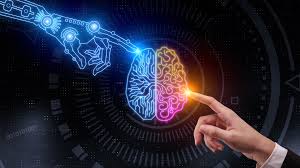
“AI for Good: Legislative Efforts to Unlock Its Full Potential 2025”

Artificial Intelligence (AI) is rapidly transforming the world, offering tremendous opportunities for innovation across industries, improving lives, and solving critical global challenges. From optimizing healthcare systems to enhancing environmental sustainability, AI has proven to be a revolutionary tool. However, as its capabilities expand, so do concerns over ethical usage, bias, transparency, and accountability. Governments across the globe are recognizing the need for robust legislation to unlock AI’s full potential while ensuring its responsible and ethical deployment.
Generative AI
The Promise of AI

AI holds the promise of addressing pressing challenges in areas like healthcare, education, agriculture, and climate change. Its predictive capabilities can help in diagnosing diseases earlier, personalizing education, improving crop yields, and forecasting environmental changes to mitigate disasters. AI can also help streamline operations in businesses, boost economic productivity, and foster innovations in sectors previously thought to be stagnant.
However, realizing these promises requires creating an ecosystem where AI can thrive while being appropriately regulated to avoid misuse, discrimination, or harm.
The Need for AI Legislation

AI is not just a technological advancement; it is a societal shift. Without proper oversight, AI systems can unintentionally perpetuate biases, compromise privacy, or lead to questionable decision-making. For instance, machine learning algorithms trained on biased data can reflect and amplify systemic discrimination. Similarly, autonomous systems making decisions without human intervention raise concerns regarding accountability.
Governments are stepping up to address these challenges by creating laws and regulations that balance innovation with protection. Effective AI legislation aims to ensure transparency in AI processes, protect user privacy, establish ethical standards, and clarify accountability in case of errors or damages. Additionally, it seeks to foster international collaboration and promote research to make AI accessible and equitable.
Global Efforts in AI Legislation

Countries around the world are taking proactive steps to legislate AI, recognizing its transformative power. Here are a few notable examples:
- The European Union (EU): The EU has been at the forefront of AI regulation with its proposed Artificial Intelligence Act. The Act categorizes AI applications based on risk levels and establishes rules for their development and usage. For high-risk systems, stringent requirements include transparency, human oversight, and unbiased training data.
- United States: While the U.S. currently lacks comprehensive federal AI legislation, various initiatives are underway. For example, the National Artificial Intelligence Initiative Act aims to advance AI research and development while addressing ethical considerations. Individual states are also crafting AI-related policies.
- India: India, with its ambitious AI programs like the National AI Strategy (NITI Aayog), is working towards leveraging AI for inclusive growth. Efforts to build frameworks for responsible AI governance are gaining momentum, ensuring that AI’s benefits reach rural and underserved communities.
- China: China has emphasized the development and regulation of AI through policy documents like its New Generation Artificial Intelligence Development Plan. The country focuses on both promoting innovation and addressing ethical and security challenges.
- Global Collaborations: Organizations like UNESCO and the OECD are promoting international cooperation to establish common principles for AI governance. Shared guidelines aim to address ethical concerns globally while fostering innovation.
Unlocking AI’s Full Potential

Legislation that emphasizes ethical development and equitable access can empower AI to achieve its full potential. Governments play a crucial role in creating an environment where AI is aligned with societal values and priorities. Here are key areas where policy efforts can unlock AI’s capabilities:
- Promoting AI Research and Education: Funding and encouraging research in AI can drive innovation while focusing on solving global challenges. Education and training programs can equip individuals with AI-related skills, fostering an inclusive AI workforce.
- Ensuring Inclusivity: AI legislation should ensure that marginalized communities and developing nations benefit from AI advancements. Equal access to AI-powered solutions can address disparities and empower underserved populations.
- Boosting Transparency and Trust: Policies that mandate transparency in AI processes can build trust among users. Consumers should have clear insights into how AI systems operate and the decisions they make.
- Fostering Ethical AI Practices: Legislators can incentivize ethical AI usage by aligning development practices with human rights, environmental sustainability, and societal goals.
Challenges to AI Legislation

Despite progress, there are challenges in crafting effective AI regulations. These include the rapid pace of AI advancements, global coordination, addressing evolving ethical dilemmas, and balancing regulation with innovation. Policymakers must adapt quickly, collaborate internationally, and work closely with industry experts to address these issues.
DPV NATION
Conclusion
AI legislation is key to unlocking the technology’s immense potential while safeguarding humanity’s best interests. Governments and international organizations must work collaboratively to create policies that promote innovation, protect rights, and prioritize ethical considerations. By balancing innovation with accountability, AI can truly be harnessed for good—creating a brighter, more equitable future for all. The journey is challenging, but with proactive governance and visionary leadership, AI can become a transformative force for global progress.






